Tackling weeds in gardens and lawns can often seem like a daunting task, but the solution may be closer to home than one might think. Household items, typically found in the pantry or under the sink, hold the key to effective and sustainable weed management. This guide unveils the surprising weed-killing power of everyday substances like vinegar, baking soda, and even vodka, providing gardeners with practical, environmentally friendly alternatives to chemical herbicides. Embracing these methods not only helps control weeds but also aligns with a more natural approach to garden care.
Contents
Salt
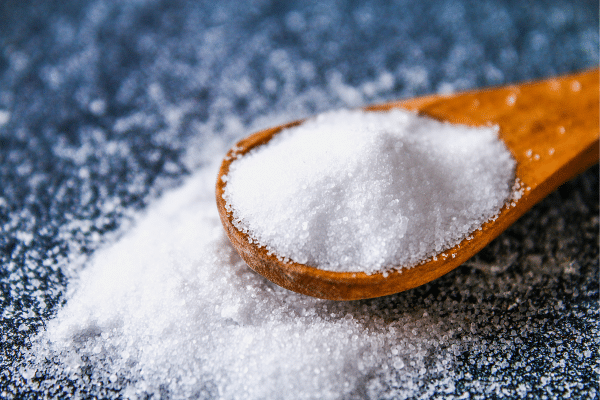
Salt, a ubiquitous kitchen staple, acts as a powerful desiccant when applied to weeds, absorbing moisture from the plants and ultimately causing them to dehydrate and die. This method is particularly effective in dealing with weeds that sprout on paths, driveways, and other areas where soil health is not a concern. However, caution is advised, as salt can easily leach into the soil and harm nearby plants by disrupting their water uptake. Applying salt directly onto the leaves of targeted weeds ensures a focused approach, minimizing collateral damage to surrounding vegetation.
The use of salt as a weed killer should be considered with care, especially in garden beds or near lawns where it can detrimentally affect soil composition and plant health. To mitigate potential risks, it’s advisable to use salt sparingly and only in areas where its impact on the environment will be limited. Over time, salt accumulation in the soil can lead to salinity issues, making it inhospitable for plant growth. Therefore, strategic application is key to leveraging salt’s herbicidal properties while preserving the overall health of the garden ecosystem.
Boiling Water
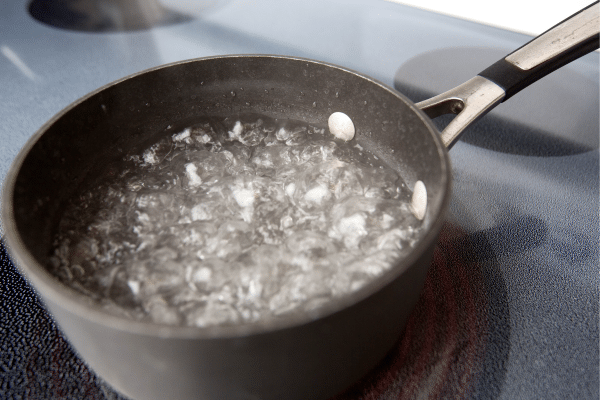
Boiling water offers an immediate and effective method for weed control, delivering a swift thermal shock that destroys plant cells on contact. This approach is best suited for weeds in sidewalk cracks, gravel driveways, or other non-vegetative areas where the risk of damaging desirable plants is minimal. Pouring boiling water directly onto the weed ensures that the heat penetrates to the roots, increasing the likelihood of a successful kill. This method is simple, requiring no special tools or preparations, making it an accessible option for immediate weed management.
However, the application of boiling water as a weed control method necessitates caution to avoid burns and ensure targeted application. It is a non-selective method, meaning it will kill any plant it comes into contact with, including desirable garden plants. Therefore, it is crucial to apply boiling water carefully, focusing on the weeds without splashing onto nearby plants or grass. Repeated applications may be necessary for perennial weeds with deep root systems to achieve full eradication.
Rubbing Alcohol
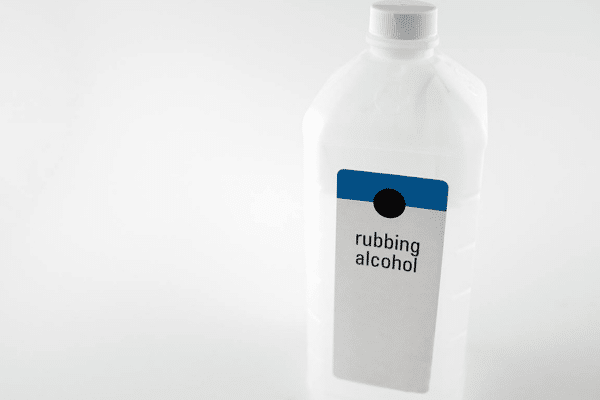
Rubbing alcohol serves as an effective herbicide due to its ability to penetrate the waxy surface of leaves and disrupt plant cells, leading to rapid dehydration and death. When applied directly to the foliage of weeds, it strips away the protective outer layer, increasing susceptibility to water loss and environmental stress. This method works best on sunny days, as the increased evaporation rate enhances the alcohol’s desiccating effects. For gardeners looking for a quick fix to spot-treat weeds in their paths or flower beds, rubbing alcohol can be a handy solution.
The use of rubbing alcohol requires careful handling and precise application to avoid damage to desirable plants. It is most effective when used in a diluted form, mixed with water, to mitigate its potentially harsh effects on the soil and non-target plants. When applying rubbing alcohol, targeting the weed’s leaves and avoiding contact with the soil can prevent adverse effects on the garden’s ecosystem. Due to its volatility, it is also advisable to apply rubbing alcohol in calm weather conditions to prevent drift and ensure the treatment reaches its intended target.
Vinegar
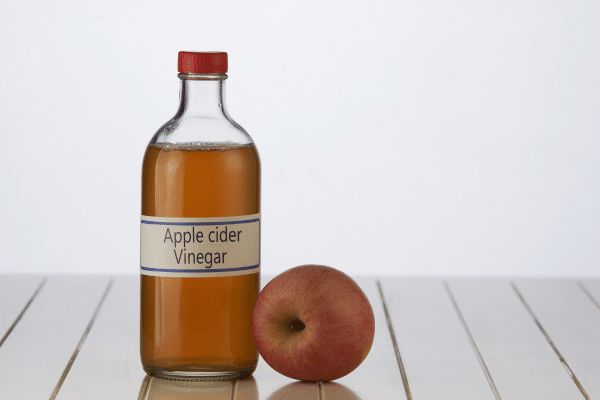
Vinegar, with its high acetic acid content, acts as a natural herbicide, capable of killing weeds through the process of desiccation. When applied to the leaves of weeds, vinegar causes rapid moisture loss, leading to the wilting and death of the plant. This method is especially effective for young, annual weeds that have not yet established deep root systems. Gardeners can use household vinegar as a cost-effective and environmentally friendly alternative to chemical herbicides, particularly for managing small weed infestations in gardens or patios.
However, vinegar should be used with caution, as its acidic nature can harm soil chemistry and affect nearby plants. It is a non-selective herbicide, meaning it can damage or kill any vegetation it contacts. To minimize risk, apply vinegar directly to weed leaves, avoiding spraying on windy days to prevent drift to desirable plants. Additionally, repeated applications may be necessary for perennial weeds or those with robust root systems, as vinegar primarily affects the above-ground parts of the plant.
Baking Soda
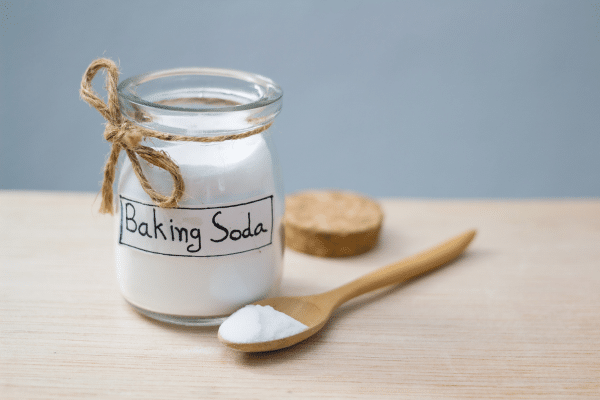
Baking soda, commonly found in kitchens, can be an effective weed control agent due to its ability to alter soil pH. When sprinkled in and around weed-infested areas, it creates an inhospitable environment for weed growth. Baking soda is particularly useful for treating weeds in cracks on sidewalks and driveways where it won’t affect the pH of garden soil. Its mode of action is slow but effective, making it a suitable option for those seeking a gradual, non-toxic weed management solution.
Care should be taken when using baking soda, as its alkaline nature can disrupt the soil’s pH balance and potentially harm desirable plants if used excessively. It is best applied in moderation and targeted specifically to weed-infested areas to avoid unintended effects on the surrounding vegetation. Regular monitoring and application can help maintain control over weed growth without compromising the health of the garden’s ecosystem.
Vodka

Vodka’s alcohol content makes it a potent weed killer, especially effective in sunny areas where its desiccating effects are maximized. When diluted with water and sprayed onto the leaves of weeds, vodka quickly breaks down plant cell structures, leading to dehydration and death. This method is best for treating weeds in open, sun-exposed areas where the alcohol can evaporate quickly, reducing the risk of soil contamination. Vodka-based weed killers offer a chemical-free alternative to synthetic herbicides, aligning with eco-friendly gardening practices.
However, the effectiveness of vodka as a weed killer depends on direct sunlight to enhance its desiccating action. Therefore, it is less effective on cloudy days or in shaded areas where evaporation rates are lower. Precision in application is crucial to ensure that the alcohol solution targets only the unwanted plants, avoiding damage to nearby vegetation. As with other household items used for weed control, moderation and careful application are key to achieving desired results without harming the garden environment.
The Bottom Line
Household items like salt, boiling water, rubbing alcohol, vinegar, baking soda, and vodka offer accessible and environmentally friendly alternatives to chemical weed killers. Each substance has unique properties that can effectively manage weed infestations when used correctly. Gardeners seeking sustainable and cost-effective solutions will find these common household products valuable tools in their weed control arsenal. However, it is essential to apply these methods judiciously, considering their potential impact on the garden ecosystem and the health of desired plants. By integrating these household items into a broader weed management strategy, gardeners can achieve effective weed control while minimizing environmental impact. Experimentation and observation are crucial in determining the most effective methods for specific garden conditions, ensuring that weed control efforts are both successful and sustainable.